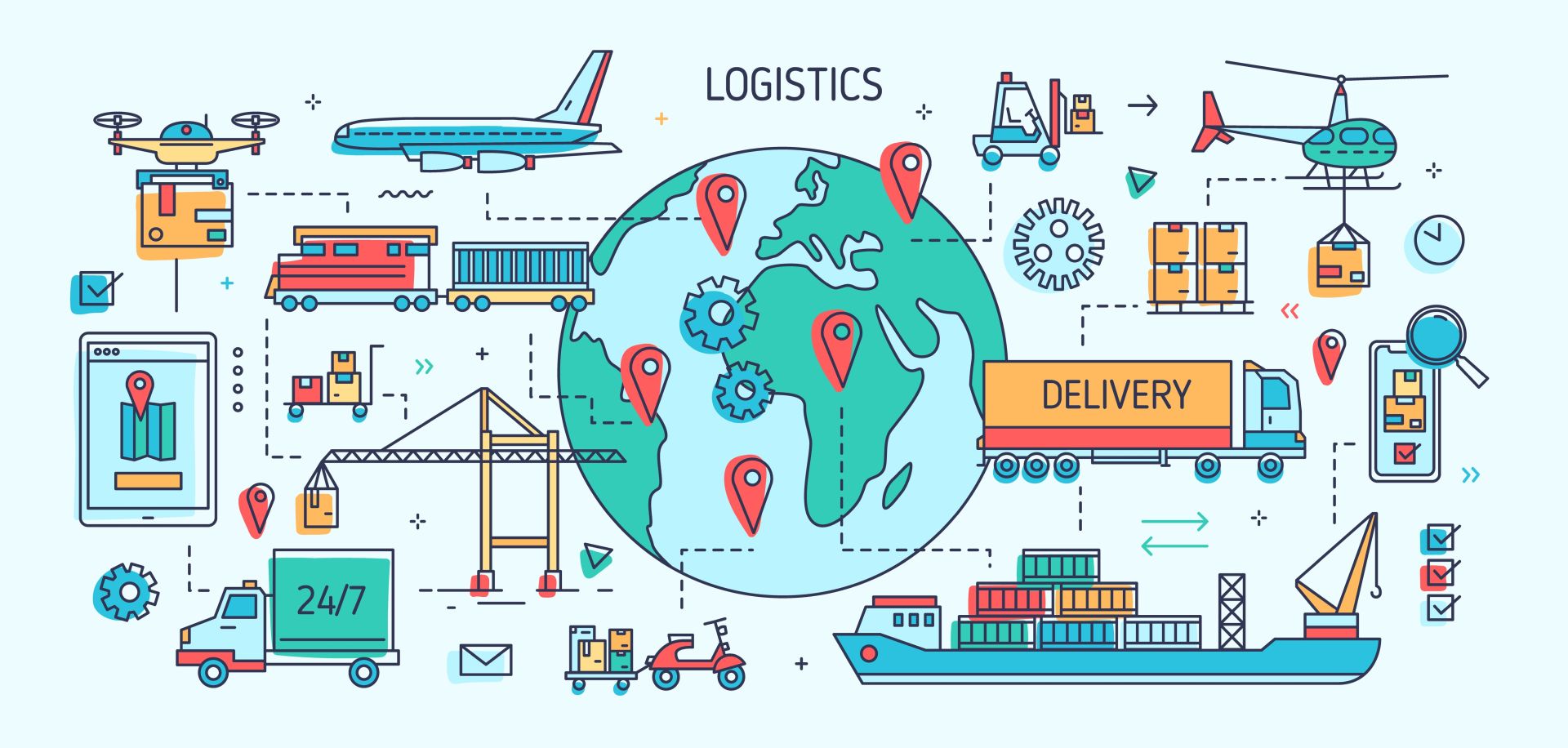
Logistics Sectors
Table of Contents
- What benefits and goals can effective warehouse logistics provide for different logistics sectors?
- What challenges arise in warehouse logistics and how can these be exemplified using some sectors?
- How can efficient warehouse management processes be implemented in different sectors?
- What examples are there of efficient warehouse logistics in different sectors and what technologies can companies use to optimise their logistics processes?
- Conclusion: What trends and forecasts can be expected for warehouse logistics in various sectors?
What benefits and goals can effective warehouse logistics provide for different logistics sectors?
Efficient warehouse logistics is invaluable for companies. It enables goods to be stored and transported quickly and cost-efficiently. However, there are differences between the various logistics sectors and the specific challenges they bring. For example, companies face particular challenges in the area of environmental criminal law and environmental liability. Here it is particularly important to implement efficient warehouse logistics to ensure compliance with legal requirements and avoid possible penalties. The Recycling Management Act also plays an important role. Efficient warehouse logistics can help reduce waste and conserve resources here. Overall, efficient warehouse logistics is therefore an important factor for the success of a company, regardless of the industry in which it operates.

What challenges arise in warehouse logistics and how can these be exemplified using some sectors?
The challenges of warehouse logistics are similar in many sectors, but there are also specific requirements and difficulties. An example of a sector with special challenges is the food industry. Here, not only must high hygiene standards be maintained, but the shelf life of the products must also be guaranteed. Efficient storage and fast delivery are particularly important here.
There are also special requirements for warehouse logistics in the fashion and textile industry. Seasonal trends require flexible management of stocks as well as a quick reaction to changes in the market.
In the environmental and recycling sector, in addition to effective logistics, it is particularly important that waste can be sorted correctly to enable the best possible recycling. Protecting our environment is invaluable and should be a priority for each of us. For this reason, environmental criminal law is an indispensable tool to ensure that companies and individuals are held responsible for their actions that have a negative impact on our environment. The Closed Substance Cycle Waste Management Act is another important instrument that aims to reduce waste and conserve resources by focusing on the reuse, recycling and recovery of waste. By supporting and enforcing these laws, we can ensure that we create a sustainable future for ourselves and future generations. We have a responsibility to protect and preserve our environment, and the Environmental Penal Code and the Circular Economy Act are crucial tools to achieve this goal. Generally speaking, digitalisation offers many opportunities for improved efficiency in warehouse logistics through the use of automated systems to control processes or the tracking of products using RFID chips.
However, this also entails risks such as cyberattacks or technical problems in the event of a system failure. In addition, especially in smaller companies, a complete digital transformation may not yet have been established - here it often requires a shift in thinking towards more modern methodologies as well as the willingness to invest the corresponding funds. All in all, it can be seen that the use of the latest technologies is an important step, but it must not be forgotten that the know-how and experience of the employees are also decisive for successful warehouse logistics.
How can efficient warehouse management processes be implemented in different sectors?
In today's fast-paced world, it is essential that companies optimise their warehouse logistics processes in order to remain competitive. But how can warehouse management be improved for different logistics sectors? Efficient warehouse logistics is the key to success and can be achieved by implementing innovative technologies and processes. One option is the use of automated storage and picking systems that reduce errors and shorten lead times.
Another option is to implement real-time warehouse management systems that allow for accurate inventory tracking and rapid response to changes. But regardless of the method chosen, it is important that warehouse logistics processes are tailored to the specific needs and requirements of the respective warehouse industry. This is the only way companies can make their warehouse logistics efficient and successful.
What examples are there of efficient warehouse logistics in different sectors and what technologies can companies use to optimise their logistics processes?
Efficient warehouse logistics is the key to success in many industries. Companies can optimise their logistics processes by using modern technologies. One example of this is the use of automated storage and transport systems, which enable the fast and precise handling of goods. The use of RFID technology to identify and track goods can also increase the efficiency of logistics processes. In the food industry, cooling systems and temperature monitoring systems can be used to ensure the quality of the products. In the pharmaceutical industry, special storage conditions are required to maintain the effectiveness of medicines.
By using innovative technologies and careful planning, companies can optimise their warehouse logistics and increase their competitiveness. Intelligent transport and route planning as well as real-time data analysis are two of the most important factors that help to optimise traffic on our roads and make it more efficient. By using state-of-the-art technologies, traffic flows are analysed and evaluated in real time to determine the best possible route for each individual road user. This not only helps to avoid traffic jams, but also to protect the environment by emitting fewer emissions. Intelligent transport and route planning as well as real-time data analysis are thus indispensable tools for making the traffic of the future sustainable and safer and more pleasant for all road users.

Conclusion: What trends and forecasts can be expected for warehouse logistics in various sectors?
In summary, warehouse logistics will face major challenges in the coming years. The increasing demand for faster delivery times and individual solutions requires high flexibility and efficiency of logistics processes. Technological developments such as automated warehouse systems, drone delivery or blockchain technology offer promising approaches in this regard. Increasing digitalisation will also have an ever greater impact on warehouse logistics. Through the use of big data analyses, processes can be optimised and new possibilities for controlling the flow of goods are emerging. Through the use of technologies such as the Internet of Things (IoT), artificial intelligence (AI) and robotics, processes can be optimised, costs reduced and customer needs better met.
Overall, it can be assumed that warehouse logistics will be even more oriented towards the needs of the customer in the future. Companies must therefore be prepared to continuously rethink and adapt their logistics concepts - this is the only way they can remain competitive in the future.
